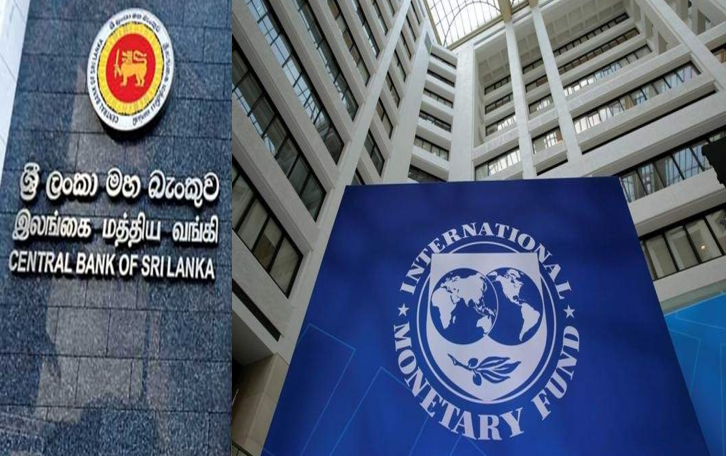Confusing in relations with IMF, Sri Lanka Central Bank Governor has sent a negative signal against the IMF facility over local media thereby risking the possibility of accessing international capital markets, which would be necessary to secure the debt rollover.
Sri Lanka requires such an international agency facility until it builds up capacity to earn and save sufficient foreign exchange to service its debt on a sustainable basis, economic analysts said.
CBSL's stand on seeking Rapid Financing Instrument (RFI) facility and the ongoing Extended Fund Facility (EFF) of the International Monetary Fund (IMF) expressed by its Governor Prof. W.D. Lakshman with no conditionality has pushed the country into a precarious position in its quest for international funding.
Sri Lanka’s stressed external liquidity position is set to remain a weakness for the country’s credit profile, and the need of additional external financing support will continue, economic experts said. The country’s external debt service amounts to around USD3.8 billion from June to December 2020, including a USD1.0 billion international sovereign bond payment due in October. Under this situation no international funding agency or foreign banks or any other foreign source will provide funding for Sri Lanka without conditions or collateral, an eminent economic expert said. He added that it is unbecoming for personality like 78 year old Prof. W.D. Lakshman to make a statement to the print media claiming that there is no “urgency” of obtaining this IMF facility in any case as Sri Lanka has “other sources” of funding.
According to RFI criterion, a member country requesting RFI assistance is "required to cooperate with the IMF to make efforts to solve its balance of payment difficulties and to describe the general economic policies that it proposes to follow."
This is not a condition as such mentioned by Prof Lakshman who has gone out of his boundary to make statements on behalf of the country, an economic expert added.
The Governor has told local media that “we do not want to go for the conditionality of the IMF. We were told this arrangement is without any conditions. If that is the case, when the opportunity comes, we will renegotiate it. It has to be negotiated on our conditions."
Prof.Laxman should understand that no one will give a loan without a surety, collateral or commitment or their conditions to repay it to the lender, economic experts pointed out.
However, in this particular instance, it is important to understand the IMF conditions and come to a conclusion without jumping the gun creating uneasy situations for Sri Lankan government's fiscal authorities, he said. Under the IMF’s Articles, the IMF may only provide its general resources under adequate safeguards and to assist members to solve their balance of payments problems. Debt sustainability is a key safeguard for IMF resources.
IMF’s lending is revolving, it is essential that members are in a position to repay their loans, so that in the future, sufficient funds exist for the IMF to lend to other countries in need.
Therefore, the IMF is required to establish, before it lends, that the borrowing country’s debt is sustainable, and that by implication it will be able to repay that debt.
At the same time, the Fund’s conditions on its loans seem to entail more micromanagement of its borrowers than would be the case even for a national bank supervisor of a troubled institution.
But the Fund imposes tough conditions because it cannot seize assets of countries, as can private creditors, IMF revealed.
However, it is the country authorities’ decision whether to approach their creditors to begin debt restructuring discussions that would deliver the necessary relief.
The IMF could proceed with lending (including emergency financing) once it has adequate assurances that debt sustainability will be restored.
Conditionality helps countries solve balance-of-payments problems without resorting to measures that are harmful to national or international prosperity.
At the same time, the measures are meant to safeguard IMF resources by ensuring that the country’s balance of payments will be strong enough to permit it to repay the loan.
Notwithstanding the ongoing intensive policy dialogue with the membership during the COVID-19 pandemic, there is growing need for resuming Article IV consultations and mandatory Financial Stability Assessments (FSAs).
However, the resumption of Article IV consultations over the coming months will need to be gradual, remain focused on the crisis and related challenges, and be undertaken flexibly, IMF sources said.
IMF Staff recommends a further extension of consultation cycles to accommodate the gradual nature of the restart.
Staff also recommends that the application of the framework to address excessive delays in the completion of Article IV consultations and mandatory FSAs be temporarily suspended.

Leave your comments
Login to post a comment
Post comment as a guest